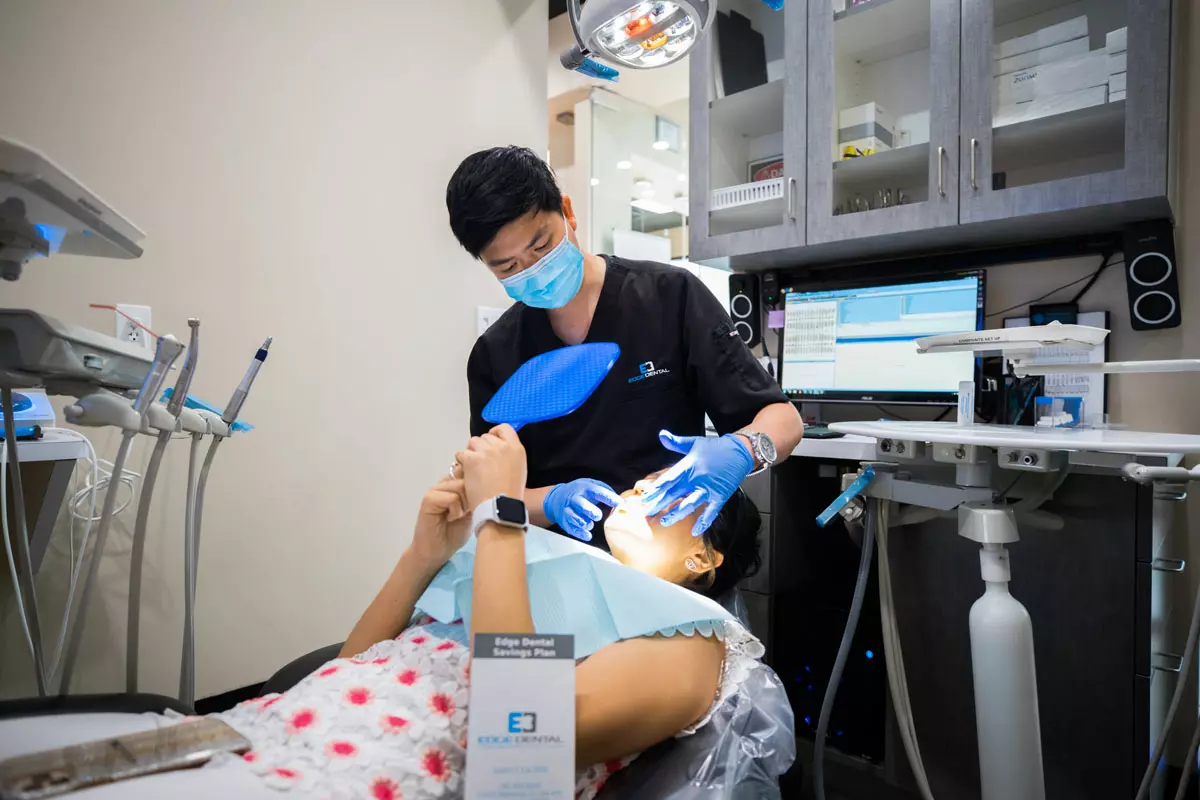What Are the Advantages of Using a Tooth Crown and Mandibular Advancement Device from a Dentist?
When it comes to dental care, modern technology and advancements have made it possible to address a wide range of issues, from tooth loss to sleep apnea. Two such solutions that have gained popularity are tooth crowns and mandibular advancement devices. If you’re considering these treatments, you may be wondering about the advantages of each. This article will explore the benefits of these dental solutions and explain how they can improve your oral health and overall quality of life.
1. What is a Tooth Crown?
A tooth crown is a cap-like structure placed over a tooth to restore its shape, size, and function. Crowns are typically made from materials like porcelain, metal, or a combination of both. They are most commonly used when a tooth is weakened, decayed, or damaged to the point where other forms of restoration, like fillings, will not be effective. Crowns are also used for cosmetic purposes, such as covering discolored or misshapen teeth.

2. The Key Advantages of Tooth Crowns
Durability and Protection
Tooth crowns are known for their strength and longevity. When applied properly by a dentist, they can last for many years—often up to 15 years or more, depending on the material and maintenance. They are highly durable and offer excellent protection to teeth that have been weakened by decay, cracks, or other forms of damage.
Improved Functionality
For those who have damaged teeth, tooth crowns can restore full functionality. This means that chewing, biting, and speaking become easier and more comfortable. A crown can restore the tooth’s ability to bear the force of biting, which is crucial for overall oral health.
Aesthetic Enhancement
Tooth crowns, especially those made from porcelain, can mimic the appearance of natural teeth, blending seamlessly with your smile. Whether you're covering a discolored tooth or a cracked one, crowns can make a significant difference in your overall aesthetic appeal. This can be particularly important for individuals who are self-conscious about the appearance of their teeth.
Protection After Root Canal Treatment
One of the common uses of a tooth crown is following a root canal procedure. After a root canal, the treated tooth can become more fragile and prone to breaking. A crown helps protect the tooth from further damage and ensures that it continues to function properly.
3. What is a Mandibular Advancement Device (MAD)?
A mandibular advancement device (MAD) is a dental appliance primarily used to treat obstructive sleep apnea (OSA) and snoring. The device works by repositioning the lower jaw (mandible) slightly forward, which helps keep the airway open during sleep. This device is custom-made by a dentist to ensure it fits comfortably and effectively addresses the individual's needs.
4. The Key Advantages of Mandibular Advancement Devices
Effective Treatment for Sleep Apnea
One of the biggest advantages of using a mandibular advancement device is its ability to treat obstructive sleep apnea. Sleep apnea is a serious condition where the airway becomes blocked during sleep, leading to interrupted breathing. MADs work by gently advancing the lower jaw, which opens the airway and reduces the likelihood of airway collapse during sleep. This can help improve breathing patterns and reduce the severity of sleep apnea symptoms.
Non-invasive Alternative to CPAP
Continuous positive airway pressure (CPAP) therapy is one of the most common treatments for sleep apnea, but many people find the machine uncomfortable or inconvenient. A mandibular advancement device offers a non-invasive, portable alternative to CPAP. MADs are smaller, easier to use, and don't require a mask or constant airflow, making them an appealing choice for those looking for a simpler solution to their sleep apnea issues.
Improved Sleep Quality
By keeping the airway open, a mandibular advancement device can reduce the symptoms of sleep apnea and snoring, which leads to better overall sleep quality. People who use MADs often report waking up feeling more rested and refreshed, which can improve energy levels, focus, and overall well-being throughout the day.
Comfort and Custom Fit
Since mandibular advancement devices are custom-made by a dentist, they provide a comfortable fit tailored to your specific mouth and jaw structure. This personalized approach ensures that the device works effectively while minimizing discomfort. Unlike over-the-counter solutions, a custom-fitted MAD can provide long-term relief without causing irritation or jaw discomfort.

5. Why Should You Visit a Dentist for Both Treatments?
Both tooth crowns and mandibular advancement devices are dental treatments that require professional expertise. While you might be tempted to look for over-the-counter solutions or DIY options, a visit to a qualified dentist ensures that you get the best possible care.
For tooth crowns, a dentist will evaluate your tooth and determine the most suitable material and technique for restoration. They will also ensure that the crown fits properly, restoring both function and aesthetics.
Similarly, for a mandibular advancement device dentist near me will conduct a thorough examination of your mouth and jaw, taking measurements and impressions to create a device that fits comfortably and works effectively. Attempting to use a generic device or one that isn't custom-made can lead to discomfort or inefficacy, which is why professional guidance is crucial.
6. Combining Both Solutions for Better Oral Health
In some cases, you may need both a tooth crown and a mandibular advancement device. For instance, if you suffer from both dental issues (such as a cracked or weakened tooth) and sleep apnea, these treatments can be combined to address both concerns simultaneously. This integrated approach can significantly enhance both your dental health and overall well-being.
Conclusion
Tooth crowns and mandibular advancement devices offer valuable advantages for maintaining good oral health. Tooth crowns can restore damaged or decayed teeth, providing durability, protection, and aesthetic enhancement. On the other hand, mandibular advancement devices are effective solutions for treating sleep apnea and snoring, offering a non-invasive, comfortable, and custom-fit approach. By consulting a professional dentist, you can ensure that these treatments work effectively and comfortably to meet your specific needs, ultimately improving both your oral health and quality of life.
Comments
Post a Comment